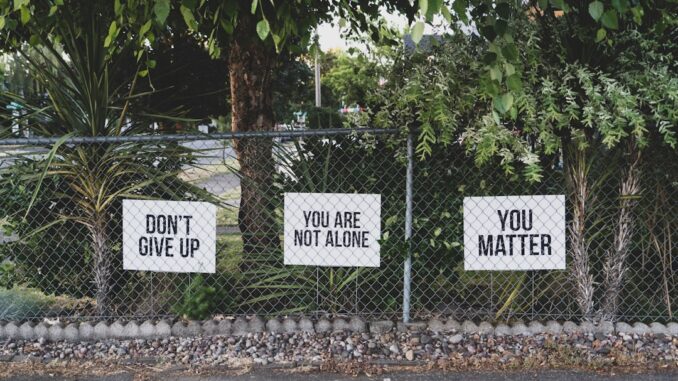
Summary
This article provides a comprehensive guide for individuals transitioning back to work after rehab, offering practical tips and strategies for a successful reintegration. It emphasizes the importance of self-care, open communication with employers, and building a strong support system. By following these steps, individuals can navigate this challenging period with confidence and maintain long-term recovery.
** Main Story**
Getting back to work after rehab? That’s huge. It’s like a fresh start, a real commitment to staying sober and getting your life back on track. Sure, it’s not always a walk in the park, but it’s definitely doable. You just need the right plan and a solid support system. So, let’s break down how to make this transition as smooth as possible.
Step 1: Know Thyself (and Plan Accordingly)
First things first, take a good, hard look at yourself. What are you good at? What do you actually enjoy doing? What are your career aspirations? Think about how rehab has changed you. Maybe you’ve developed a new sense of empathy or resilience. How can you use that in a job? For example, I knew a guy, Mark, who went through rehab and realised he was really good at helping others. He ended up working as a peer support specialist.
Create a ‘Return to Work Plan’. Sounds a bit corporate, I know, but hear me out. What potential triggers might you encounter at work? Stressful deadlines? Office politics? Figure out how you’ll deal with them. Write down some coping strategies. Deep breaths, a quick walk, a chat with a supportive colleague – whatever works for you.
Step 2: Honesty is the Best Policy (Maybe)
If you’re going back to your old job, think about talking to your boss. Now, I know, this is scary. But it can really help. If they know what’s going on, they can understand your needs better. Maybe you need a slightly flexible schedule for therapy appointments? Or, perhaps you need to use your employers EAP (Employee Assistance Program), they may even be able to offer counselling services.
That said, you absolutely don’t have to disclose everything. You’re protected by law, which we’ll get to later. Use your judgment. If you have a good relationship with your employer, it might be beneficial. If not, maybe keep it to yourself, at least for now.
Step 3: Build Your Tribe
Recovery isn’t a solo mission, it needs a supporting cast. Lean on your family, friends, support groups, and therapists. These are the people who will cheer you on, hold you accountable, and offer a shoulder to cry on when things get tough. And trust me, there will be tough times.
There’s a ton of support networks out there. Consider reaching out to rehab alumni groups or peer support organizations. Sharing experiences with people who get it? That’s invaluable. It really is.
Step 4: Self-Care is Non-Negotiable
Staying sober requires consistent effort. Think of it like maintaining a car; you can’t just fill it up with gas once and expect it to run forever. You need regular maintenance. Self-care is your maintenance.
Exercise, eat well, meditate, get enough sleep. All the basics. But also, structure your day. Schedule in therapy sessions or support group meetings. A routine provides stability and reduces stress. Plus, it’s harder to fall off track when you have commitments.
Step 5: Toolbox of Coping Mechanisms
Work can be a pressure cooker and lets face it, can be a stressful place. You need tools to handle the heat. Remember those coping skills you learned in rehab? Time to put them to use. Deep breathing, mindfulness, short breaks – whatever helps you stay calm and centered.
More importantly, have a relapse prevention plan, this is crucial. What are your triggers? How will you manage them? Who will you call if you’re struggling? Write it all down. Review it regularly. It’s your safety net. And, don’t be afraid to use it.
Step 6: Ease Back In (If Possible)
Going from rehab to full-time work can be a shock to the system. If you can, ease back in gradually. Start with part-time hours, a flexible schedule, or a less demanding role. This gives you time to adjust and build momentum.
And hey, if your old job just doesn’t feel right anymore, that’s okay too. Explore other options. Maybe a completely new career path is calling your name.
Step 7: Know Your Rights (and Use Them)
You have rights as a person in recovery. The Americans with Disabilities Act (ADA) protects you from discrimination. The Family and Medical Leave Act (FMLA) might provide job protection if you need to seek treatment. Don’t hesitate to use these protections if you need to.
Step 8: Never Stop Learning (and Growing)
Recovery is a marathon, not a sprint. Invest in your personal and professional development. Take job training programs, educational courses, or get certifications. Enhance your skills, expand your opportunities, and keep moving forward.
Ultimately, getting back to work after rehab is a huge victory. It shows strength, resilience, and a commitment to a better future. By taking it one step at a time, building a solid support system, and prioritizing your recovery, you can absolutely build a fulfilling career while staying sober. And, if you ever need a reminder, seeking support isn’t a sign of weakness; it’s a sign of strength, its not always easy to remember.


Be the first to comment